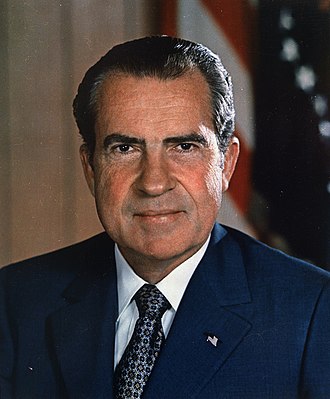There have been a lot of stories in the news lately about the possibility of nuclear war. Threats and counter threats have flowed to and from North Korea. One big question that has gotten a lot of ink is how exactly how a nuclear strike would be authorized for the Unites States military.
Our current system allows the President of the U.S. to unilaterally call for the launch of nuclear weapons against other nations. The window for deciding whether the U.S. should launch nuclear weapons in case another country launched a nuclear weapon against the U.S. is on the order of a few minutes.
The President would convene senior military leaders in the War Room if he were in residence at the White House. Otherwise, there is a special procedure to verify the President’s identity if he is calling from a remote location. They would have a few minutes to discuss it and try to change his mind if they did not believe that a launch was necessary to protect the country. Regardless of anything that they said, if the President was not convinced to stop, they would be duty bound to communicate the order to launch to our triad of delivery system.
There has been a lot of discussion in the media lately because some question the mental stability of our current President. Many believe that a decision to participate in a nuclear exchange that could destroy our civilization should never rest with just one man. Bills are being written in Congress to require more checks and more people in any decision to launch our nuclear weapons.
It turns out that this is not a new problem. Once before in the history of our country, the mental stability of a U.S. President was in question when he ordered the launch of nuclear weapons.
Richard Nixon was elected President of the United States in the fall of 1968. He was very anti-Communist and had spoken harshly about communist governments including North Korea during the campaign. In early 1969, N.K. shot down an U.S. EC-121 spy plane over the Sea of Japan. This infuriated Nixon and he called on the Joint Chiefs of Staff to draft plans for a nuclear strike on N.K. and suggest targets. It turns out that he was drunk the evening that he made the call.
An Air Force pilot who was stationed in South Korea at the time of the downing of the EC-121 recalls receiving orders to prepare to drop a three hundred and thirty pound nuclear bomb on an air strip in N.K. He was relieved when the order to stand down came the next day.
Henry Kissinger recounts that he called the Joint Chiefs following Nixon’s call and requested that they wait until morning when the President was sober and could reconsider his plan to nuke N.K. In the morning, Nixon did reconsider and the plan was cancelled. Kissinger later remarked that Nixon seemed to be eager to engage in nuclear war on a number of occasions. Fortunately for the U.S. and the rest of the world, cooler heads prevailed and he never did unleash the U.S. nuclear arsenal.
This story highlights the danger of putting the control the U.S. nuclear arsenal in the hands of one man.
Richard Nixon, 37th President of the United States:
